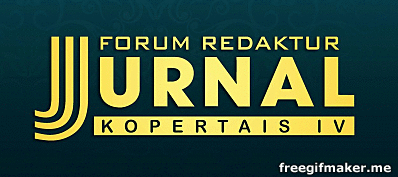The Integration of Auto-Education and Itqan Principles in Building Children's Intrinsic Motivation: A Case Study at Firdaus Islamic Course

DOI:
https://doi.org/10.32665/alulya.v10i2.5653Keywords:
Auto-Education, Itqan, Intrinsic Motivation, Islamic MontessoriAbstract
Early Childhood Education (ECE) in Indonesia faces a critical paradox that the societal demand for premature academic skills often undermines the educational goal of fostering intrinsic motivation, a challenge exacerbated by digital distractions. This study analyzes the conceptual and practical integration of the Montessori principle of Auto-Education and the Islamic work ethic of Itqan in cultivating intrinsic motivation and holistic character at Firdaus Islamic Course (FIC). Using a qualitative case study design, data were collected through source triangulation, comprising in-depth interviews, participatory observation, and document analysis and were analyzed thematically. The findings reveal that the synergy between Auto-Education (the how) and Itqan (the spiritual why) creates an effective hybrid pedagogical model. This integration reframes learning as purposeful 'work' ('amal), demonstrably enhancing children's independence, responsibility, and emotional regulation. Crucially, this impact is amplified by a strong parent-school partnership and is consistently transferred to the home environment. The study concludes that this fusion enriches Self-Determination Theory by introducing a transcendental dimension and successfully cultivates robust intrinsic motivation by framing independence as a meaningful act of worship. It thus offers a potent, culturally-grounded solution to contemporary educational challenges.
Downloads
References
Aisya, A. R., Winata, W., & Dewi, H. I. (2021). Fenomena implementasi Montessori sebagai media pembelajaran kreatif untuk anak pra sekolah. Jurnal Instruksional, 3(2), 97–116. https://jurnal.umj.ac.id/index.php/instruksional/article/download/12346/6926
Alhashim, G. (2023). Adapting the Montessori method in Saudi early childhood classrooms [Disertasi doktoral, University of South Florida]. Digital Commons. https://digitalcommons.usg.edu/etd/10936
Aminah, S. (2022). Islamic religious education in Montessori preschool. Dalam Proceedings of the 5th International Conference on Learning Innovation and Quality Education, ICLIQ 2022. EUDL. https://doi.org/10.4108/eai.19-10-2022.2329047
Bayly, C. I., Bernaune, M., & Dapp, L. C. (2020). Teacher-reported use of self-determination theory-based practices with preschoolers exhibiting challenging behavior. Journal of Positive Behavior Interventions, 23(2), 110-122. https://doi.org/10.1177/1098300720952876
Braun, V., & Clarke, V. (2006). Using thematic analysis in psychology. Qualitative Research in Psychology, 3(2), 77–101. https://doi.org/10.1191/1478088706qp063oa
Crain, W. (2015). Theories of development: Concepts and applications (6th ed.). Pearson.
Creswell, J. W., & Poth, C. N. (2018). Qualitative inquiry and research design: Choosing among five approaches (4th ed.). SAGE Publications.
Darnis, S., Rosyada, D., & Arief, A. (2022). Islamic religious education in Montessori preschool. Dalam Proceedings of the 5th International Conference on Learning Innovation and Quality Education, ICLIQ 2022. EUDL. https://doi.org/10.4108/eai.19-10-2022.2329047
Deci, E. L., Koestner, R., & Ryan, R. M. (1999). A meta-analytic review of experiments examining the effects of extrinsic rewards on intrinsic motivation. Psychological Bulletin, 125(6), 627–668. https://doi.org/10.1037/0033-2909.125.6.627
Epstein, J. L. (2018). School, family, and community partnerships: Your handbook for action (4th ed.). Corwin Press.
Fahruddin, M., et al. (2025). Maintaining Islamic values within the Montessori educational institution. Al-Hayat Journal of Islamic Education, 1(1), 40-43. https://ejournal.alhayat.or.id/index.php/ajie/article/view/40
Hidayat, L. (2021). Metode pendidikan anak Montessori dalam perspektif pendidikan Islam [Skripsi, Universitas Islam Negeri Syarif Hidayatullah Jakarta]. https://repository.uinjkt.ac.id/dspace/bitstream/123456789/58489/1/SKRIPSI%20Luthfi%20Hidayat.pdf
Kementerian Pendidikan, Kebudayaan, Riset, dan Teknologi. (2022). Survei nasional kesiapan akademis anak masuk sekolah dasar. Pusat Standar dan Kebijakan Pendidikan.
Khairullah, M. Z., et al. (2022). Itqan as a pillar of Islamic work ethic in education. Journal of Islamic Studies, 5(2), 45-60.
Komisi Perlindungan Anak Indonesia. (2024). Laporan tahunan mengenai dampak penggunaan gawai pada anak usia dini. KPAI.
Lepper, M. R., Greene, D., & Nisbett, R. E. (1973). Undermining children's intrinsic interest with extrinsic reward: A test of the overjustification hypothesis. Journal of Personality and Social Psychology, 28(1), 129–137. https://doi.org/10.1037/h0035519
Lillard, A. S. (2017). Montessori: The science behind the genius (3rd ed.). Oxford University Press.
Lillard, A. S., & Else-Quest, N. (2006). The early years: Evaluating Montessori education. Science, 313(5795), 1893–1894. https://doi.org/10.1126/science.1132362
Lillard, A. S., Heise, M. J., Richey, E. M., Tong, X., Hart, A., & Bray, P. M. (2017). Montessori preschool elevates and equalizes child outcomes: A longitudinal study. Frontiers in Psychology, 8, 1767. https://doi.org/10.3389/fpsyg.2017.01767
Montessori, M. (1967). The absorbent mind. Holt, Rinehart and Winston.
Mufidah, N. L., & Wijayanti, R. (2022). Integration of Montessori and Islamic activities for children's social-emotional development. Journal of Islamic Early Childhood Education Research & Practice, 1(1), 12-20. https://ejournal.stit-syekhburhanuddin.ac.id/index.php/jised/article/download/12/20
Organisation for Economic Co-operation and Development. (2025). Report on digital well-being and attention disorders in early childhood. OECD Publishing.
Palmer, S. B., Kulik, N., & St-Louis, E. (2019). A qualitative study of teachers’ perceptions of self-determination theory in the classroom. Journal of Educational and Psychological Consultation, 30(2), 1-28. https://doi.org/10.1080/10474412.2019.1670243
Rachman, Y. A. (2019). Mengkaji ulang kebijakan calistung pada anak usia dini. Jurnal Kajian dan Pengembangan Umat, 2(1), 14–22. https://jurnal.umsb.ac.id/index.php/ummatanwasathan/article/viewFile/1538/1337
Rahman, A., & Suryana, D. (2023). Islamic religion through Islamic Montessori learning: A curriculum development for early childhood. ResearchGate. https://www.researchgate.net/publication/367400632_Islamic_Religion_through_Islamic_Montessori_Learning_A_Curriculum_Development_for_Early_Childhood
Ryan, R. M., & Deci, E. L. (2000). Self-determination theory and the facilitation of intrinsic motivation, social development, and well-being. American Psychologist, 55(1), 68–78. https://doi.org/10.1037/0003-066X.55.1.68
Ryan, R. M., & Deci, E. L. (2020). Intrinsic and extrinsic motivation from a self-determination theory perspective: Definitions, theory, practices, and future directions. Contemporary Educational Psychology, 61, 101860. https://doi.org/10.1016/j.cedpsych.2020.101860
Shuriye, A. O. (2009). The concept of Itqan and its role in the Muslim life. IIUM Engineering Journal, 10(2), 1-13. https://doi.org/10.31436/iiumej.v10i2.115
Wehmeyer, M. L., Shogren, K. A., & Little, T. D. (Eds.). (2020). Development of self-determination through the life-course. Springer.
Widodo, S. A., & Suryosukmono, G. (2021). The concept of Itqan in the Qur'an and its relevance to professionalism in work. Jurnal Ilmiah Ekonomi Islam, 7(3), 1500-1508. http://dx.doi.org/10.29040/jiei.v7i3.2845
World Health Organization. (2019). Guidelines on physical activity, sedentary behaviour and sleep for children under 5 years of age. WHO.
Yousef, D. A. (2001). Islamic work ethic: A moderator between organizational commitment and job satisfaction in a cross-cultural context. Personnel Review, 30(2), 152-169. https://doi.org/10.1108/00483480110380325
Downloads
Published
Issue
Section
License
Copyright (c) 2025 Choirun Nijma, Imam Machali

This work is licensed under a Creative Commons Attribution 4.0 International License.
 PDF Download: 111
PDF Download: 111












